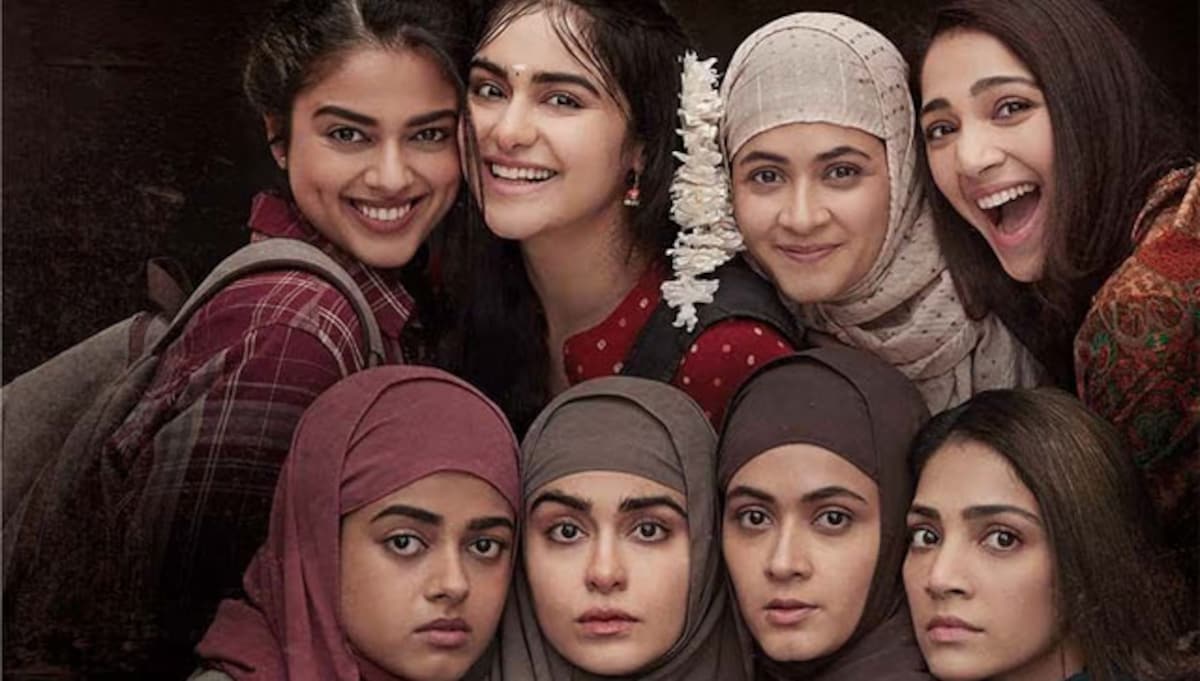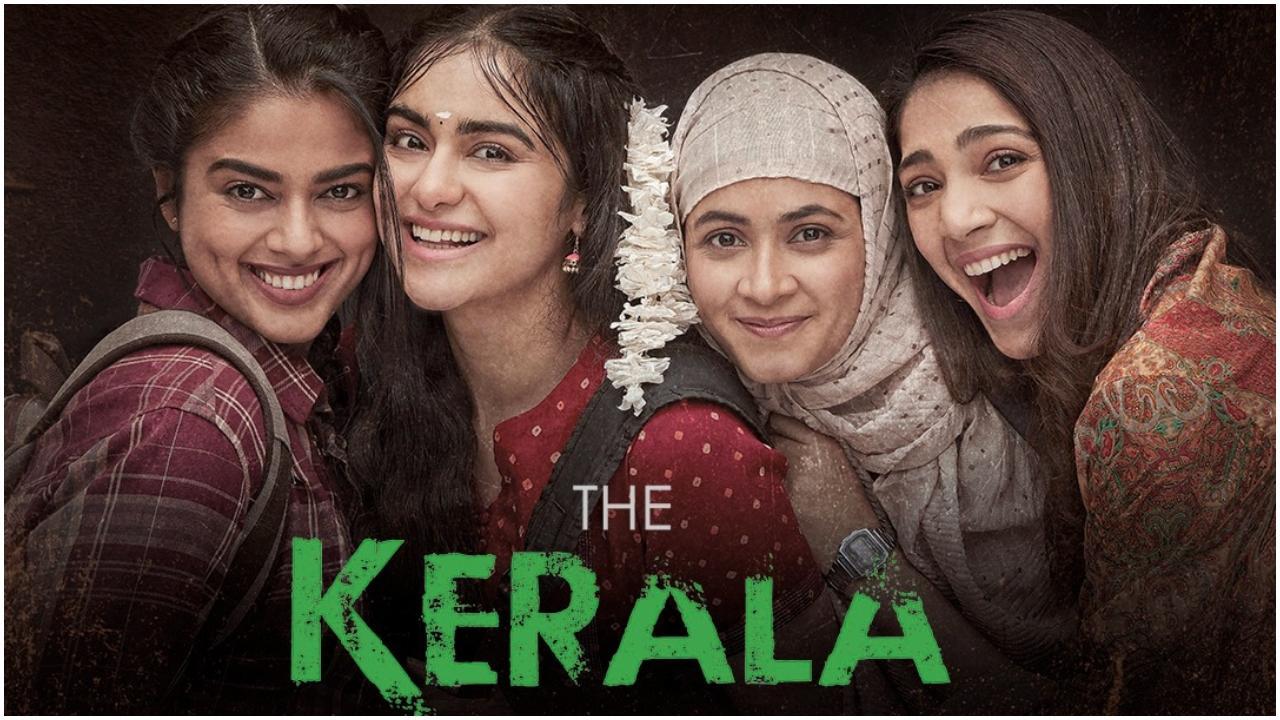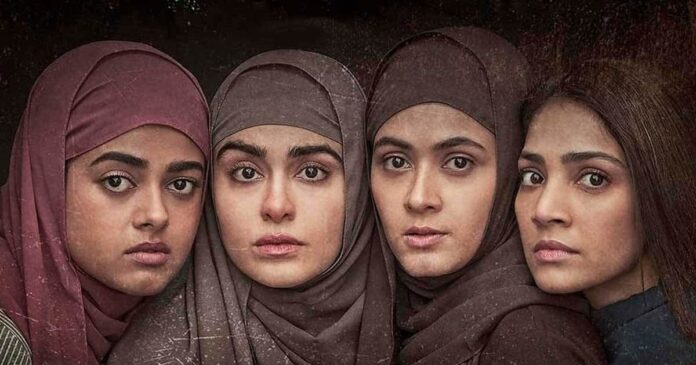In a significant development, the Supreme Court of India issued a stay order on Thursday, effectively halting the West Bengal government’s ban on the public screening of the movie ‘The Kerala Story.’ The court deemed the ban, which was implemented through a May 8 order, as suffering from an “overbreadth” issue. Furthermore, it highlighted that the ban lacked any substantial evidence or material produced before the court.

Constitutional Protection: Supreme Court Steps In to Stay the Ban
The Supreme Court ,The Chief Justice of India, DY Chandrachud, presided over the bench that issued the stay order. Recognizing the importance of maintaining law and order, the court directed the Tamil Nadu government to ensure all necessary security arrangements were in place for the smooth screening of the film and the safety of moviegoers.
Petitions seeking a ban on the film have been scheduled for hearing in July. The supreme court hinted at the possibility of viewing the film itself, as the Madras High Court had already dismissed a petition challenging the certification granted by the Central Board of Film Certification (CBFC).
Responding to the controversy, the producers of ‘The Kerala Story’ expressed their willingness to include additional disclaimers in the film. These disclaimers would emphasize that the suggestion of 32,000 converted individuals or any other specific figure lacks authentic data. Additionally, the producers reiterated that the film presents a fictionalized version of the subject matter.
The Supreme Court bench emphasized that it is the responsibility of the state government to uphold law and order, especially considering that the film had received certification from the CBFC. During the hearing, the bench remarked, “Bad films bomb at the box office.” It further expressed concerns over the misuse of legal provisions to cater to public intolerance, as it would create a dangerous precedent where all films could face similar challenges.
Setting Legal Precedents: Implications of the Supreme Court’s Intervention
Senior advocate Harish Salve, representing the film’s producer, argued that states should not have the authority to challenge the certification granted by the CBFC. Referring to past judgments, Salve highlighted that the Supreme Court had consistently ruled against the court sitting in appeal over CBFC certifications.
The bench indicated its inclination towards staying the ban imposed by the West Bengal government on the film. Salve pointed out that no statutory appeal had been filed against the CBFC certification, supporting his argument that the Supreme Court should not entertain appeals challenging the certification process. The ongoing hearing encompasses cross-pleas, including the producer challenging the ban on screening in West Bengal and the decision of Tamil Nadu’s theater owners to refrain from showing the movie in the state. Journalist Qurban Ali has also challenged the Kerala High Court’s order, which denied a stay on the film’s release.
‘The Kerala Story,’ featuring Adah Sharma in a prominent role, was released in theaters on May 5. Directed by Sudipto Sen, the film alleges that women from Kerala were coerced into converting to Islam and subsequently recruited by the terrorist group Islamic State (ISIS).
The Supreme Court’s stay order on the ban has brought a temporary respite to the film’s producers and supporters, allowing them to continue showcasing the movie to the public. As the legal battle ensues, the industry and the audience eagerly await the final decision, hoping for a fair resolution that balances creative freedom and societal concerns.
Navigating the Boundaries: Art, Responsibility, and Societal Impact
The controversy surrounding ‘The Kerala Story’ has sparked a heated debate on the limits of artistic expression and the role of state governments in regulating films. Supporters of the film argue that artistic freedom must be safeguarded, allowing filmmakers to explore diverse themes and narratives. They contend that creative works often touch upon sensitive subjects, aiming to provoke thought and generate discussion among viewers. By imposing a ban, they argue, the government is impeding the free exchange of ideas and stifling the artistic process.
On the other hand, opponents of the film’s release assert that it propagates a false narrative and could potentially incite religious tensions. They believe that the ban is necessary to prevent the dissemination of misinformation and protect social harmony. According to them, films should adhere to certain standards and ethical considerations, ensuring that they do not promote hatred or stereotype communities. They argue that the state government’s intervention is essential to safeguard public interest and prevent any potential harm that the film may cause.
This clash of perspectives has elevated the case to the highest court in the land. The Supreme Court’s intervention is significant, as it not only addresses the specific ban on ‘The Kerala Story’ but also establishes important legal precedents for future instances where artistic freedom clashes with societal concerns.
The stay order by the Supreme Court sends a strong signal that any ban or restriction on creative works should be backed by substantial evidence and adhere to the principles of proportionality. The court’s assertion that the ban suffers from “overbreadth” implies that it extends beyond what is reasonably necessary to achieve its intended objective. This standard ensures that the rights of filmmakers and audiences are adequately protected while addressing legitimate concerns about the content of the film.
In addition to staying the ban, the Supreme Court also emphasized the role of state governments in maintaining law and order. By instructing the Tamil Nadu government to provide security arrangements for the film’s screening, the court reinforces the importance of ensuring the safety of moviegoers and preventing any potential disruption or violence that may arise due to the controversy surrounding the film.
The court’s remark that “bad films bomb at the box office” reflects the belief that the audience’s discernment plays a crucial role in determining the success or failure of a film. It implies that instead of resorting to bans or censorship, the market should determine the fate of a film based on its merit and reception among viewers. This viewpoint aligns with the principles of a democratic society, where individuals have the freedom to choose the content they wish to consume.
As the legal battle unfolds, it is essential to consider the broader implications of this case. The outcome will likely shape the future landscape of the Indian film industry and the extent to which state governments can intervene in matters of artistic expression. It may prompt a reevaluation of the existing certification and regulatory frameworks governing films, ensuring they strike a balance between creative freedom and social responsibility.
Moreover, the case highlights the significance of the Central Board of Film Certification (CBFC) and its role in certifying films for public exhibition. The certification process is designed to assess a film’s content and provide appropriate age-based classifications and disclaimers. While the CBFC’s decisions are subject to judicial review, it remains a crucial institution in upholding standards and guidelines for the film industry. The Supreme Court’s stance in this case reinforces the importance of respecting the CBFC’s certification and not undermining its authority by allowing state governments to overrule its decisions.
In conclusion, the Supreme Court’s stay order on the ban imposed by the West Bengal government on ‘The Kerala Story’ has provided a temporary reprieve for the film’s producers and supporters. It reiterates the importance of protecting artistic freedom while acknowledging the legitimate concerns surrounding the content of the film. The case underscores the need for a nuanced approach that respects both creative expression and societal sensitivities.
As the legal proceedings continue, the decision of the Supreme Court will serve as a guiding principle for future cases and contribute to the ongoing discourse on the intersection of art, freedom, and responsibility in the Indian film industry.

